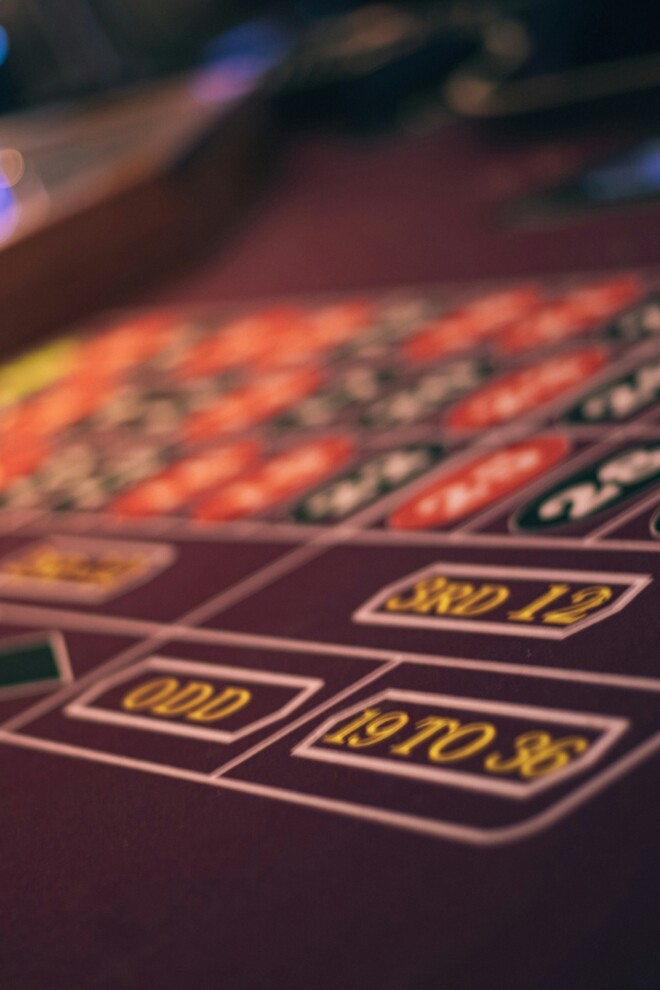If you’ve spent any time at all near a casino, you’ll recognise that people don’t always make the best decisions with their bets. People often go with their gut feeling, they don’t respect the odds, and they don’t recognise the tricks that fate can play when you’re simply trying to have a good time. The answer is simple: don’t be like them. What’s more, you can have more fun playing if you have a better idea of your chances for a win. However, explaining why it’s important to avoid certain patterns of behaviour is often covered in lots of impenetrable maths, making it difficult for many players to easily understand.
Here, without the maths, we’ll go through one of the major fallacies to avoid when you’re playing, so major that it is literally called ‘The Gambler’s Fallacy’ as though there aren’t any others. By checking out this article, you should be equipped for almost any situation that it comes up in the future.
What Is The Gambler’s Fallacy?

Put simply, this fallacy is this:
“An independent event does not change its odds, regardless of the previous outcome.”
An independent event is something that takes place from beginning to end by itself, and no matter what other previous events have happened, there is no effect on the results. So, for example, even if you have had 999 heads in a row when tossing a coin, the odds of the next outcome being heads or tails remains the same no matter what. You aren’t due a tail just because you’ve had a lot of heads in a row.
A famous example of this fallacy occurred in 1813, when the ball landed on the black on roulette 26 times in a row. This was exceptionally unlikely, to occur 1 in 66.6 million. This meant the gamblers felt that this imbalance in the universe would be countered by a streak of red. This didn’t happen, inevitably, well not until punters lost millions.
A common flip side of this fallacy is the idea that if you score a lot of heads in a row, that means that you’re more likely to get a head. There might actually be some logic behind this, because the unlikely run of events could indicate that the coin is not true and there’s some skewing going on. However, if the reasoning is simply that the coin seems to prefer heads rather than tails, then this won’t work.
Why ‘The Gambler’s Fallacy‘ ‘Feels’ Right
This seems intuitively wrong because if you’d expect the odds of a coin toss to eventually even out to approximately the same each time. A problem with this fallacy is that it is easily confused with the odds of an accumulation of bets. For example, if you get three heads in three tosses, there is a probability of an eighth or 7:1. If you get two heads in a row, you might think that the probability of the third being a head is an eighth. However, this isn’t the case.
Working out the probability of three heads in a row only stands for the whole event before the first coin is tossed. Even though the first two coin tosses are known, this has no effect on the odds of the final toss.
An important point to remember that this fallacy illustrates is that random is random, not even. You might get eight heads in a row, you might get the same number several times on the roulette wheel, or the same numbers in a lottery. It’s no different in its likelihood than anything else. Sure, over time, things should even out, but that timescale could be in the billions.
An important insight, however, is to recognise that this can affect how you gauge the success of your gambling system. For example, if you have a good betting system, the system is likely to be affected by random events. If the probability of your system is that it will win 60 percent of the time, and you get a bad run of, say 70 percent failures, you might begin to doubt your system’s effectivenss. You need to have faith in the probabilities and remember the probabilities don’t guarantee you that many wins.
Likewise, if you find your system results in more wins than you expected, rest assured that this doesn’t mean you’re necessarily ‘guaranteed’ a loss anytime soon, although at the same time don’t be surprised if one turns up. Probabilities are just likelihoods, they aren’t the universe ‘owing’ you a rebalance.
Why we are Susceptible to the Gambler’s Fallacy
The reason why we hold this fallacy is that we believe that the small numbers that we can observe are reflective of larger outcomes. We believe that if something is 50/50, then the streaks will eventually iron themselves out. So if people make up an imagined set of events, they generally assume that the odds will be even, whereas in fact, the random occurrence of events means that it is often unlikely that a 50/50 probability will result in an exact 50/50 distribution.
It’s even been suggested that the gambler’s fallacy reflects a belief in the just world hypothesis, in that there is a common psychological tendency to believe that the world is fair, and therefore any unfairness will be ultimately rebalanced. This isn’t necessarily a fallacy in the broad scheme of things, but it’s important to recognise that it doesn’t apply to inanimate objects where there is no way in which past events can affect future ones.
Recognising When The Gambler’s Fallacy doesn’t apply

The Gambler’s Fallacy does not apply in cases where the previous event does have an effect on future outcomes. For example, in poker or blackjack, what cards might be in the pack is affected by those that have already been dealt. To take an extreme example, if you know where three aces are, then the chances of the next card to be drawn is an ace is much, much lower. In the case of slot machines, there is often set loss ratio, meaning the more time has passed since the last payout, the more likely you are to win.
It’s also important to recognise that this doesn’t apply to sports betting because there are reasons why past events might affect future outcomes. You could consider the fact that your favourite team has won five times in a row to reflect a good run of training meaning it is more likely that the next game will be a win. Alternatively, you could consider it reeks of complacency, making it more likely that the next game would be a loss. Either way, the games are usually played by humans who know what their last result was, and this means they can be affected by it.
Hopefully you’ll engage in more sophisticated analysis than this, but the key lesson is that whether a team won or lost last week does often have an effect on the next outcome, so it’s something to consider. Teams are made with people with memories, whereas the roulette wheel doesn’t have that kind of memory, so you can more safely assume that each spin is random.
The Gambler’s Fallacy: One to Avoid
So in short, previous failures don’t make future successes more likely. Similarly, a run of successes don’t result in you more likely to hit a loss. So when playing a game in which you have independent events, beware of the gambler’s fallacy and make sure you don’t let your gut override your brain when placing a wager. This isn’t to say don’t enjoy betting on whatever you like – gaming is meant to be fun, after all. Just remember, no matter what it feels like you want to believe: random is random.












